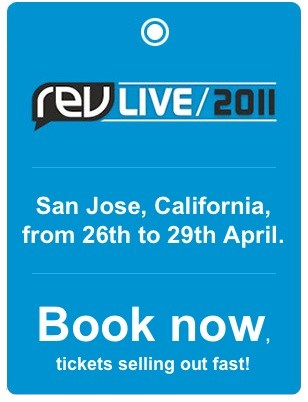
| Issue 108 | April 7th 2011 | Contact the Editor | How to Contribute |

| ||
|
Therapy 2.0 - Computer Based Self Help
Did you know that virtual applications are increasingly being used to treat patients with mental health issues? Virtual reality is being used to treat phobias, addiction and post-traumatic stress disorders. Text messaging is giving patients real time counselling when their problems hit hardest. And tech savvy therapists are even starting to use mobile apps to connect with their patients in the real world, or to offer patients an alternative to traditional therapeutic techniques.
“Therapists and patients, speaking to each other in therapy - that’s the old way” Dr. Woelk insists, reminding me that therapy has moved on since the time of Sigmund Freud. “These days it’s about behaviour, about getting the patients to do something to change their behaviors.” This is a theme that is clearly close to his heart - getting the patients to do the work to bring about their own recovery. Good therapy, he tells me, is not about the therapist telling the patient what they need to change, but is rather a journey where the patients discover their own route to recovery. Crucially, it’s the patient who has to do the work. A vital element of this, as Dr. Woelk sees it, is embracing modern technologies to complement the traditional therapeutic method. “Psychotherapists have the responsibility to use contemporary and effective mediums. Firstly more patients can be reached and treated than ever before, secondly mediums such as computers, the Internet or mobile phones broaden the spectrum and treatment options. Why not use what is already available to most of the patients?” What has he done to date?
So successful was Brainy at helping OCD patients to retrain their behaviors that Dr. Woellk and Andreas Seebeck have brought out a version for training elementary school children to do their homework on time. Through games, relaxation instructions and fantasy journeys Brainy helps kids with ADHD to develop new behaviors and promotes concentration and learning.
Therapy 2.0 and LiveCode Until now, Dr. Woelk explained, he’s been using simple multimedia tools to build these interactive programs. However, he started to find these programs limiting and needed something with a lot more functionality. “We needed a tool that could keep up with us, which responded instantly to new ideas and which let us write programs that grow quickly to encompass the full depth of our mental health projects” Dr. Woelk said. That was when a colleague at the University of Osnabrueck, Germany, introduced him to LiveCode. His colleague uses LiveCode to carry EEG experiments (but that’s a whole other story!) so Dr. Woelk was confident that it would be up to the task of making his ‘little helpers’ (this is how Dr. Woelk and the psychotherapist community refer to the programs they use to interact with their patients).
Dr. Woelk and his collaborators are driving progress in the psychotherapy community. He feels that progress could be faster - therapists have been reluctant to embrace new technologies - and points to the USA, the UK and the Netherlands as ‘the promised land’ for the future of Therapy 2.0. “It’s about putting technology into the secret hoard of psychology” he says. With visionaries like Dr. Woelk and his contemporaries leading E-Mental health provision I am sure that soon we will all be leaving the couch behind and sharing our worries and woes via our cell phones and mobile devices! Congratulations to Christine Woelk, Dr. Woelk’s wife, partner and fellow psychotherapist, who was the lucky winner of the iPad2 in our recent 4.6 launch competition. She plans to use the iPad to test the new programs she and her husband develop in E-Mental Health provision. RunRev are delighted that this prize has gone to such a good cause and I speak for the whole office when I say how proud we are to see LiveCode being put to such a unique and rewarding use.
| 
 Tweet
Tweet
|